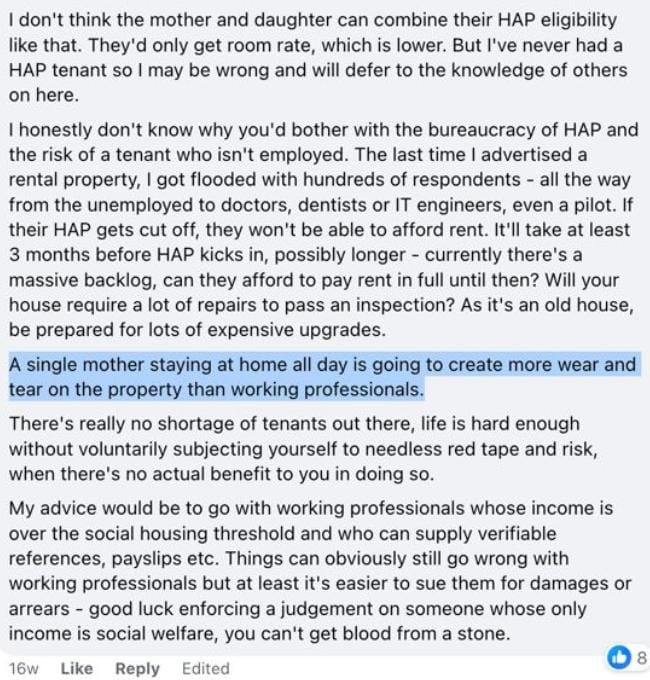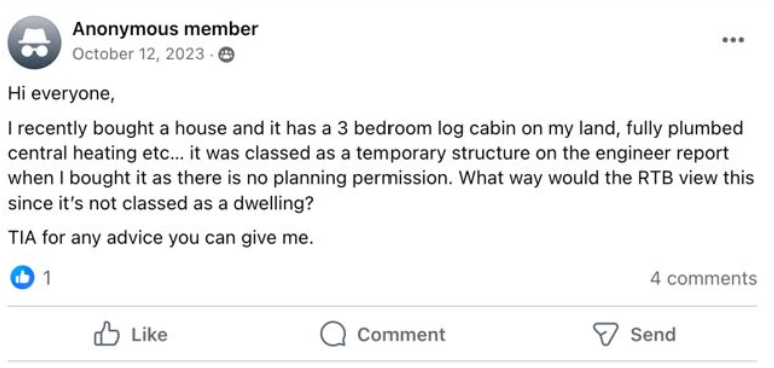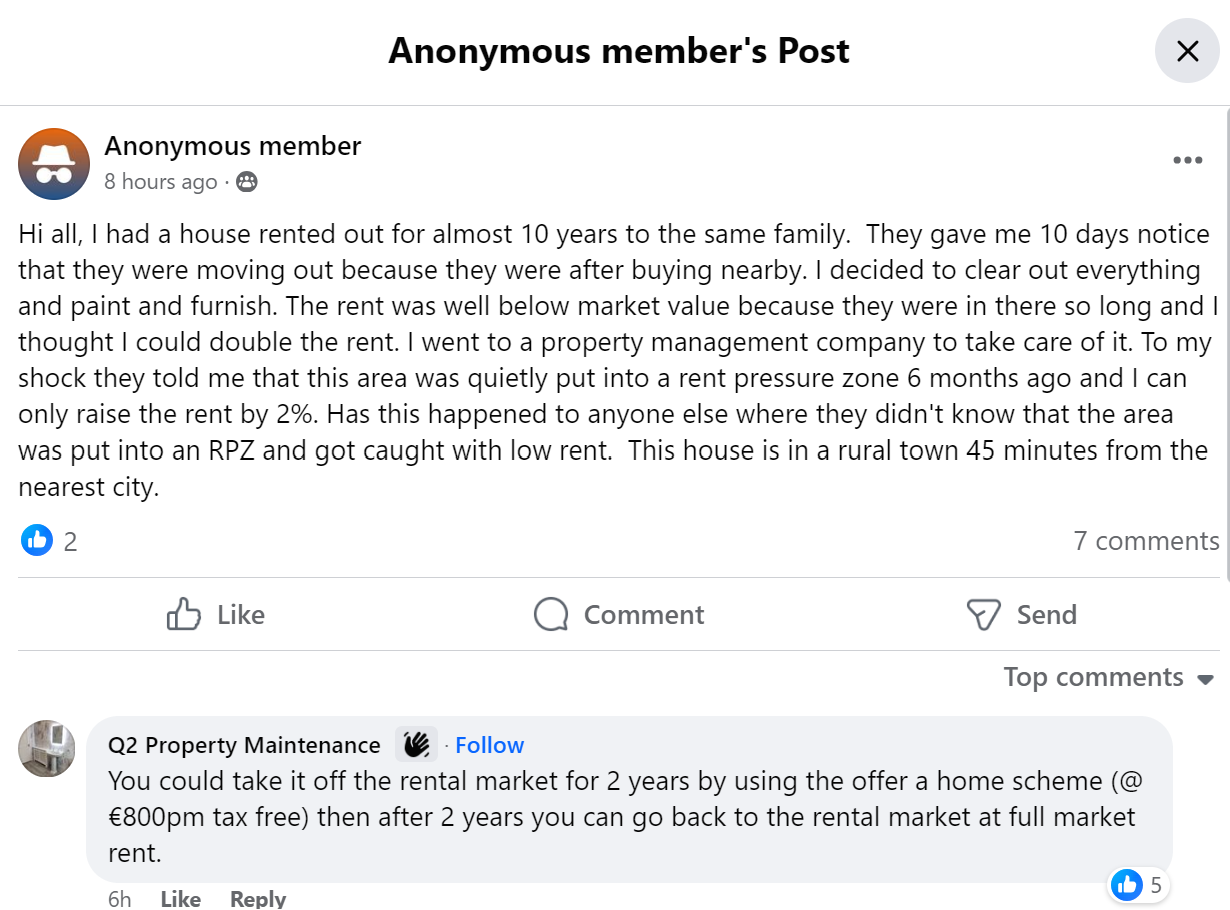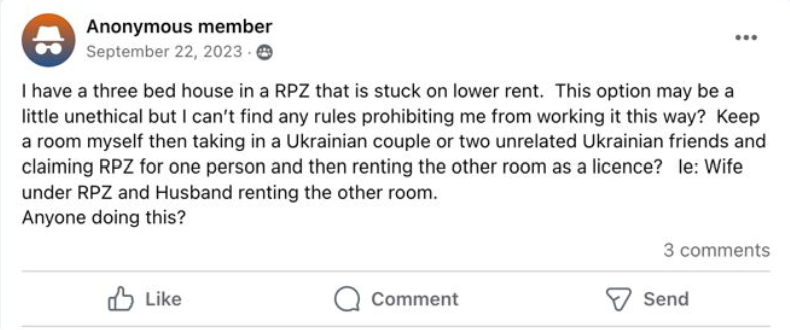Landlords across Ireland are using Facebook groups to exchange advice on how to circumvent laws restricting rent increases, evict long-term tenants and identify the most lucrative demographics to whom they can rent their properties.
The Ditch conducted an analysis of hundreds of posts from private groups aimed at Irish landlords – Landlords Ireland (541 members), Advice and Support for Landlords (931 members) and Irish Property Investors (21,500 members).
Many landlords posted in the groups anonymously, occasionally admitting to failing to register with the RTB and often expressing frustration at being unable to raise rents further.
‘This is not a business where it pays to be nice’
In one instance a property owner solicited advice on housing a family on housing assistance payment. The family comprised a single parent, a grandmother and a child. A “top contributor” to a landlord Facebook group said this was a bad idea.
“A single mother at home all day is going to cause more wear and tear on the property than working professionals.”

Another landlord discussed a council's order to change a smoke alarm and reinstall a carbon monoxide detector after a property inspection. Group members suggested the landlord simply ignore the order.
One landlord sought advice on reversing a rent increase declared to the RTB.
They were initially “trying to be kind” but have since changed their mind and want to increase it more.

A different property owner posted in a group expressing guilt about increasing rent as their tenants were saving for a house. They then said they intended to go ahead with the increase anyway but wanted to make it “as painless as possible.” Their fellow landlords told them to ignore this impulse and increase the rent to the market rate – as high as legally possible – because they may lose out on additional increases in years to come.
“You will not get to reset the rent again for two years (even with new tenants) by which time your area could well be in a rent pressure zone,” reads a response, adding that “unfortunately, this is not a business where it pays to be nice – the system punishes nice landlords, it doesn’t reward them.”
Several landlords sought guidance on evicting long-term tenants, some of whom had been in their residences for up to a decade. A concerning trend also emerged, where landlords advised each other to house Ukrainian refugees as a strategy to circumvent rent caps imposed by rent pressure zones.
“Take it [a landlord’s property] off the market for two years by using the offer a home scheme (@800 pm tax-free) then after 2 years you can go back to the rental market at full market rent,” advised one landlord to another who was looking to substantially increase rent despite living in a rent pressure zone.

Another landlord wanted to know if there were any rules prohibiting them from offering a room to one Ukrainian tenant, under the accommodation recognition payment scheme, while renting another to their spouse at market value – despite the idea being “a bit unethical.” Group members responded that they disagreed with this characterisation, outlining how the landlord might best go through with their proposal.

When one landlord asked for advice about renting out a log cabin in their back garden that was built without planning permission and is currently listed as a temporary structure, another landlord responded, “What they don’t know won’t hurt them.” Someone else proposed putting the structure on Airbnb or offering it to Ukrainian refugees.


